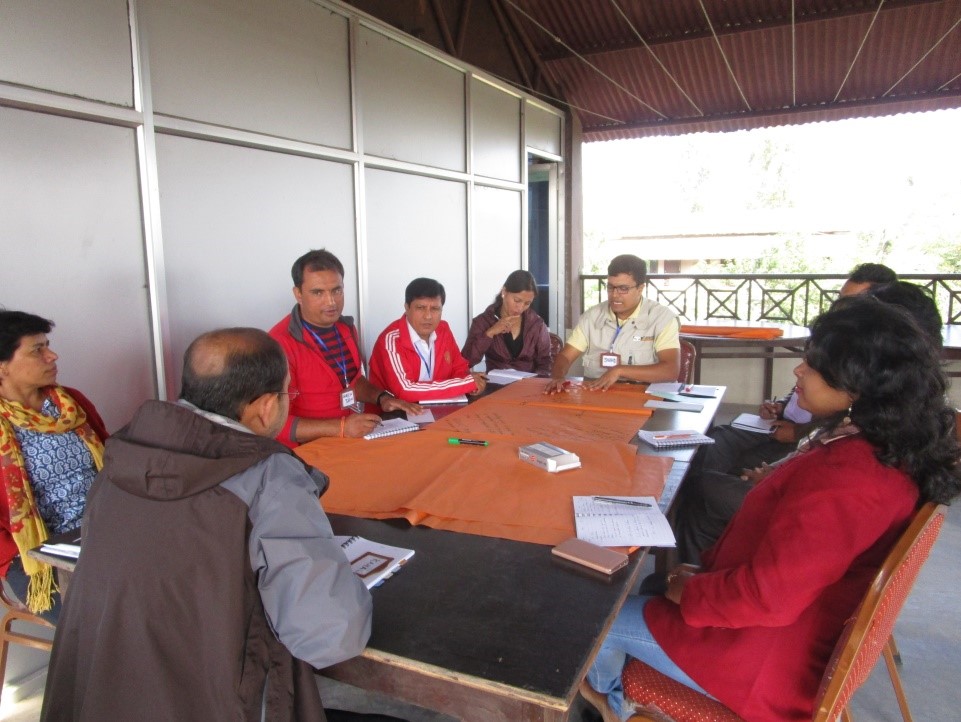The third regional workshop in Asia took place from 14 to 17 November 2016 in Bardiya, Nepal. Once more, the regional workshop has provided an inspiring platform of exchange for the regional teams across Nepal and Bangladesh. The teams presented their good practices and lessons learned drawn from Consortium projects in the form of innovative videos and posters, which created an enthusiastic atmosphere of mutual learning and collaboration. The workshop has also been successful at clarifying specific technical issues related to water quality, handwashing and functionality of public latrines. For example, to improve water quality at point of use, the participants came to the following conclusion: The projects need to:
- follow the Water Safety Plan concept
- ensure the use of household water treatment systems such as filters
- induce behavior change at household level and provide private taps.
Furthermore, the teams could benefit from expert advice given by Olivier Magnin (Swiss Agency for Development and Cooperation, Global Program Water) and Manohara Khadka (Swiss Agency for Development and Cooperation country office Nepal), who participated at the whole workshop, and Ursula Schmid (Program Coordinator Nepal, Consortium Focal Point Swiss Red Cross), who attended the workshop during 3 days. An input on SDGs and Integrated Water Resource Management from an invited external expert of the Institute for Social and Environmental Transition in Nepal was very much appreciated by the participants and ended in enriching discussions among the participants.
On the third day, the teams visited the Joint Emerging Town Project, which aims at improving access to water and environmental sanitation in the town of Katarniya in Nepal’s Bardiya district. For planning purposes, joint action plans were developed for the year 2017 at intra- and inter-country levels. To conclude, the teams evaluated advantages and disadvantages of working as a Consortium in the Asia Region which will be evaluated in an internal review of the Consortium.

